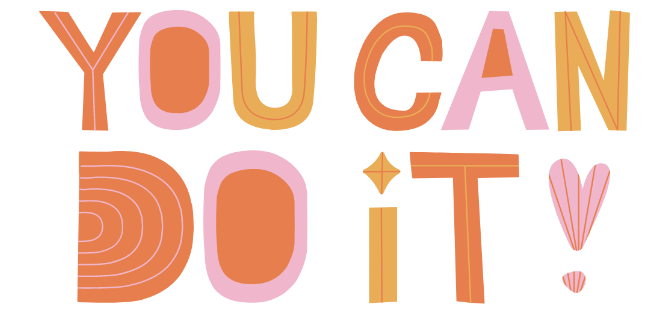Playing The Game: How to Help Your Teen Make The Most of Their Strengths AND Weaknesses
Why a focus on not just strengths can set your teen up for study success.
I’m here to help your teen get their study on track. To help them reach their academic potential. To get the grades they’re actually capable of.
In order to do that, we need to get real.
We need to get real about where your teen is ‘at’ with their studying. What are they good at? What are they not so good at? What do realistic goals for their academic achievement actually look like?
The reason I want you and your teen to think about this, is because understanding their strengths AND weaknesses, is actually going to make their study more efficient and productive.
I want your teen to learn how to be smart about the way they study, and to learn how to play ‘the game’ of preparing for exams.
Here’s the why and how.
Achieveable Goals = Motivation
We all love our kids to bits and think they’re amazing, but when it comes to studying and their post-high school pathway, it’s not actually helpful to have our heads in the clouds thinking that every teen is destined to be a neurosurgeon or engineer for NASA; two professions traditionally associated with ‘success’.
That mentality, IMHO, is unlikely to help your teen get the grades they’re actually capable of.
Of course it is helpful to be encouraging and supporting of our kids, but what we want to avoid is helpful encouragement turning into overblown and unrealistic expectations.
Why?
Because if your teen feels like they are facing an uphill battle when it comes to studying and preparing for exams (omg how on Earth am I supposed to get good grades I don’t even understand what I’m doing), the prospect of getting straight A’s (or something close to), will probably just feel overwhelming.
And feeling overwhelmed is not going to help your teen feel motivated or make them productive. In fact, it will probably inhibit their motivation.
Whereas, if your teen can — with your help — assess where they are ‘at’ objectively, they will know what subjects and topics they enjoy and find easier, and what subjects are going to be harder to study for, either because they don’t enjoy them, or they struggle with them, or both.
This is not an exercise in I suck at Maths so what’s the point. The outlook can still be positive.
Rather than, I suck at Maths so I’m not going to try, the idea is, I know I struggle with Maths, so I will designate 1 hour twice a week after school to keep up.
Having realistic expectations and goals should make studying and preparing for exams feel a lot more achieveable.
Because instead of your teen harbouring the daunt and burden of unrealistic expectations that they don’t know how to meet, they will be striving for grades / goals that ARE achievable.
Playing ‘The Game’ of Exams
In my last post I talked about how the overall goal for your teen’s study should be progress, not perfection, as perfect marks are not required for anyone or anything.
What we should be aiming for is progress and consistency.
And consistency requires your teen to play the game of exams.
What do I mean by ‘game’?
Students who study efficiently and effectively approach studying for exams with a strategy.
They have a PLAN for how they are going to get the best grades possible, even though they of course don’t know exactly what the exam questions are going to be.
I want YOUR teen to be smart about how they study and prepare for exams, regardless of what grades they are aiming for.
A lot of teens fall down with their exam study because they approach studying like napalm — approaching every subject / topic in the same way, without consideration of what subjects / topics are going to require more time to get to grips with, or what level of investment they should be making in each topic.
For instance, if your teen really struggles with Maths, and would be delighted just to pass, then let’s make passing the goal! Unrealistic goals for subjects / topics they really struggle with is just going to create stress, and it’s going to waste time.
Using Time Wisely
If Maths is a weakness, then why spend hours and hours studying trying to attain a grade that isn’t going to happen?
During exam study in particular, time is a very scarce resource, and your teen has to allocate their time to each subject and topic in a way that’s going to maximise their potential.
Obviously we want your teen to spend the time they need to on each subject to pass, but it may be that spending more time than that is not an effective use of their time or energy.
It’s probably better that they use their time and energy to focus on another subject/topic that they really like and are good at, and could get a really good mark in.
There’s quite a bit to digest there, but here are the main takeaways:
As a student, it helps to know your strengths AND weaknesses
Achieveable grades are a lot more motivating
Efficient studying requires having a strategy
Progress and consistency is way more important than straight A’s, which no one gets anyway
Allocate study time to strengths and weaknesses as appropriate
Basically, this all boils down to having a specific, tailored approach to exam study, with a focus on strengths AND weaknesses, because this is much more likely to result in the grades your teen is actually capable of.
I would love to hear your thoughts in the comments. Does this resonate? How is your teen going? Do they know how to approach studying or are they in the feeling overwhelmed phase? Let’s talk it out.
Thanks so much for reading.
Clare
P.S. I am really close to finishing the Exam Study Survival Kit — a downloadable resource to guide your teen from A-Z through exam study. I’ll be sending out an update with all the details in the next couple of weeks :)






